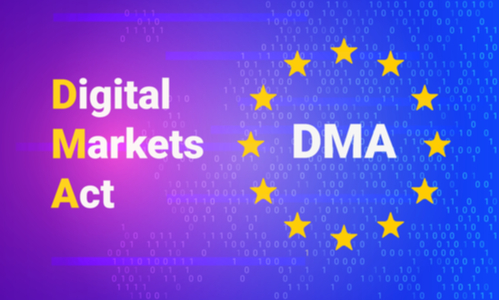Amid growing speculation of a behind-the-scenes trade compromise, the European Union has firmly rejected suggestions that it would dilute its landmark digital competition law, the Digital Markets Act (DMA), in exchange for tariff concessions from the United States.
According to a statement made by Spain’s Minister for the Ecological Transition, Teresa Ribera, in an interview with Bloomberg TV, the notion that the EU would alter the DMA as part of trade negotiations with Washington is baseless. “Of course not,” Ribera said when asked whether the tech law could be leveraged during tariff talks. She added, “We do not challenge the US on how they adopt regulations. I think we deserve respect in the same way.”
Her remarks come in response to reports that a draft trade proposal has been circulated by the U.S. Trade Representative’s office. As reported by the Wall Street Journal, the draft outlines a potential “agreement on reciprocal trade” that, while not directly addressing tariffs imposed under former President Donald Trump, does raise several long-standing issues between the two allies — including the DMA, environmental trade measures, and shipbuilding policies. Per the report, the agreement contemplates establishing a formal dialogue over the DMA and potentially carving out exemptions for U.S. firms.
The Digital Markets Act, which entered into force to curb the power of dominant digital platforms, specifically targets so-called “gatekeeper” companies — large tech firms that meet thresholds in market impact, user reach, and durability. According to the criteria set by the European Commission, five of the seven designated gatekeepers are based in the U.S., a fact that has drawn scrutiny from American lawmakers and tech industry advocates.
Any move to exempt these companies from DMA requirements would severely undermine the regulation, which is designed to prevent anti-competitive practices in digital markets. The law restricts activities like self-preferencing, data monopolization, and unfair bundling practices, with the goal of promoting greater competition and consumer choice.
The EU currently has multiple ongoing investigations into potential breaches of antitrust rules, including high-profile cases against Apple, Google, and Meta. Apple, in particular, was recently hit with a combined €700 million ($785 million) in fines. According to a statement from the European Commission, these penalties are part of the bloc’s broader effort to enforce fair competition standards in the digital economy.
